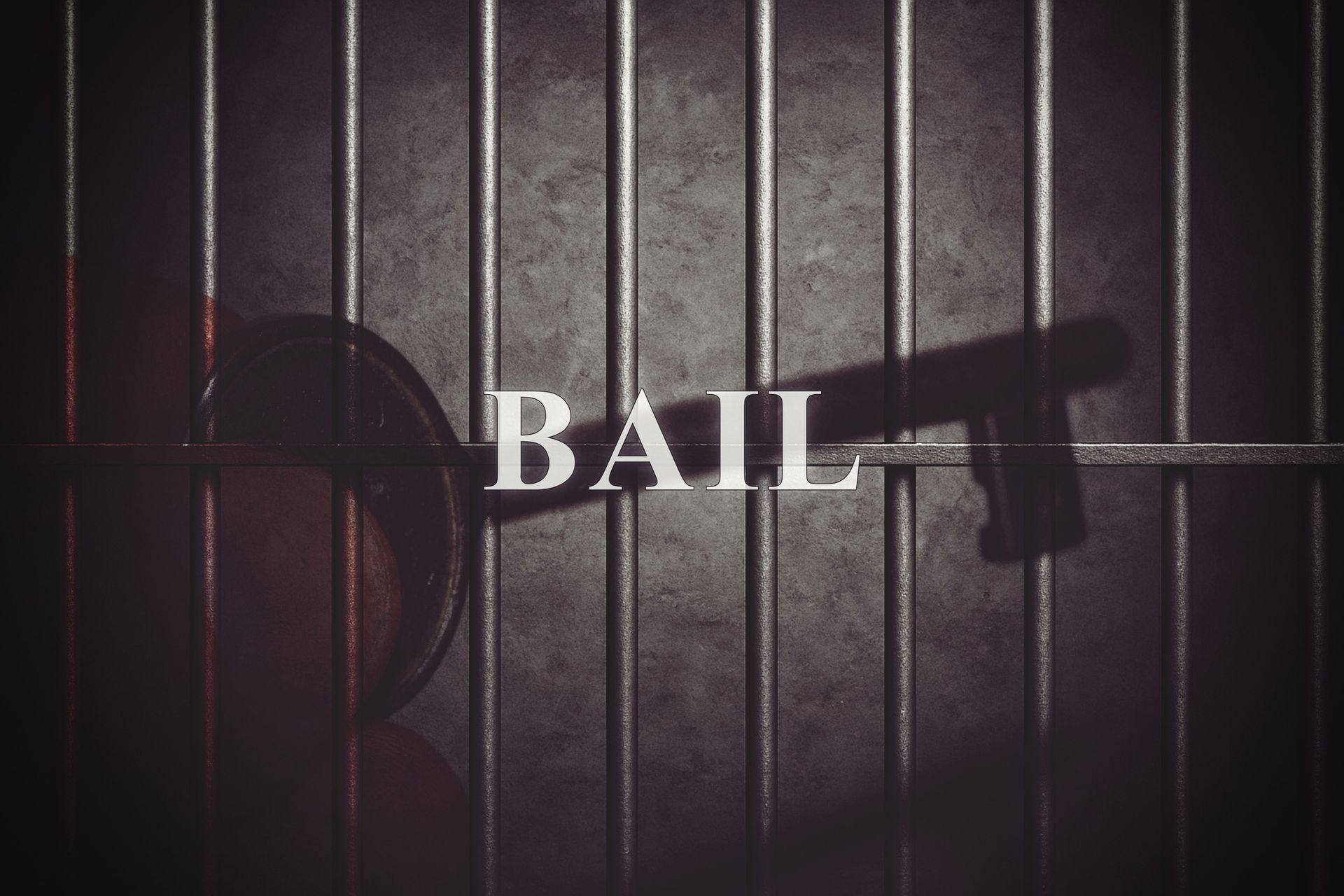It’s Your Signature! Understanding Forgery Crimes in Montgomery County
From a criminal law standpoint, forgery is essentially no different from theft, vandalism, or any other type of property crime. Section 39-14-114
, the state’s primary statute in this area, sets out forgery punishment according to the value of the good or service the forger obtained.
But from other perspectives, forgery is practically a violent crime. The forger was usually in a position of trust. That’s especially true with regard to financial forgery and document forgery. The fact that the forger betrayed that trust makes the crime quite serious in the eyes of potential employers and other such individuals.
So, if you are arrested for forgery, it is very important to work with Fizer Bonding Company (bailbonds Clarksville tn) to quickly get out of jail and fight the charges. Yet many people choose to plead guilty at the arraignment and accept a brief jail term. With the time they had already served, they may get out of jail after the charges almost immediately. But that is usually a regrettable decision because a forgery conviction may haunt them for the rest of their lives.
Can You Go to Jail for Forging a Signature on a Financial Instrument?
Until the 2010s, many financial forgery cases involved personal checks. Almost anyone could swipe a check or a checkbook and:
- Write a completely fraudulent check,
- Alter the amount, payee, or other information,
- Falsify a signature on a check, or
- Present a forged check for payment.
Personal check writing is no longer as common as it was. However, many businesses still write checks
for payroll, rent, and other expenses. Checks leave a clearer and easier-to-follow paper trail than electronic payments. As a result, may modern financial forgeries involve business checks, which means more money is at stake.
People who forge business checks often work at that company in a position of trust. They may be accountants, clerks, or other financial services employees. Only a few of these individuals are sophisticated Frank Abagnale-type forgers
who do everything from scratch.
Apropos of nothing, isn’t it a nice touch during the movie “Catch Me If You Can” with Leonardo DiCaprio, that Frank puts the freshly-forged checks into the Bible to get them ready to present?
Back to the blog. Financial forgery is often a crime of opportunity. Since there is usually a substantial betrayal factor, the maximum financial forgery punishments are rather severe:
- Under $500 — one year in jail,
- $500 to $1,000 — six years in prison,
- $1,000 to $10,000 — twelve years in prison,
- $10,000 to $60,000 — fifteen years in prison,
- $60,000 to $250,000 — thirty years in prison, and
- More than $250,000 — sixty years in prison.
High-dollar financial forgery crimes usually involve several instruments. Many companies routinely pay tens of thousands of dollars a month to various suppliers. It does not take many of these checks to reach the $10,000 or $60,000 mark.
Types of Document Forgery
It is also a crime to forge or alter any official document, like a professional license or professional license application, if the actor/impersonator has the intent to obtain a financial gain.
This element is sometimes hard to prove. If Alex alters a diploma so her friends respect her more, she has probably not committed a forgery crime. However if she alters a diploma to increase her chance of landing a job, she is probably guilty of forgery. It does not matter if she got the job because of something other than the diploma. When she forged it, she intended to gain financially.
The same thing may apply with regard to forged school transcripts. If Julie breaks into the school computer and changes her grades, she may not be guilty of forgery, unless there was a financial motivation behind her hacking. But, she may be guilty of another crime.
Commonly altered real estate documents include deeds, leases, or easements (permission to use part of a property tract). Intent is usually straightforward in these matters.
Is Forging a Doctor’s Note a Crime?
Falsifying or altering a doctor’s note is usually a Section 39-14-114
infraction, if the defendant had the requisite intent.
Some people submit fraudulent doctor’s notes to their employers. Perhaps they want to get paid for a day they were absent. Other employees alter doctor’s notes. Workers’ compensation fraud is a good example. A subtle alteration, like changing the range of motion loss on an injured shoulder, could mean thousands of dollars more to the injured party upon financial settlement of the injury.
If the doctor’s note is a prescription, the forger may be charged with prescription drug fraud, which is a separate offense. Under Section 53-11-416
, it is a Class D felony (maximum twelve years in prison) to “to acquire or obtain, or attempt to acquire or obtain, possession of a controlled substance by misrepresentation, fraud, forgery, deception, or subterfuge.”
That’s a very broad statute. If Bill alters the number of refills on his Oxycontin prescription, even if he does not present the fake prescription to a pharmacist, he may be facing up to twelve years in prison. Ouch, that is a stiff punishment for a few pills.
Possible Defenses
As we have repeatedly mentioned, lack of intent may be a defense to forgery charges. Generally, jurors may infer intent from conduct, and prosecutors rely heavily on this legal doctrine. But the opposite is also true. Jurors may also infer lack of intent from certain actions or inactions. And, the prosecutor has the burden of proof on this point.
Additionally, forgery is a specific intent crime. The defendant must intend both the conduct (altering the document) and the result (financial gain). Aggravated assault is another example of a specific intent crime. The defendant must intend the conduct (hitting the victim) and the result (seriously injuring the victim).
Intoxicated persons may be not guilty of specific intent crimes as a matter of law. These individuals lack the capacity to form a specific intent. In layman’s terms, when you are drunk, you cannot think two steps ahead, as far as Tennessee law is concerned.
Lack of evidence, and specifically the lack of a complaining witness, is a third possible defense. Many criminal cases last several months. Over time, the complaining witnesses often lose interest in the case, especially if police caught the forger before the witness lost any money. If there is no complaining witness, a Robertson County judge may be inclined to throw the case out of court.
If you or a loved one has been arrested in Robertson or Montgomery counties for forgery or other criminal offenses, contact Fizer Bonding Company (bail bonds clarksville tn) for a FREE bail bond consultation. We are family owned and offer 24/7 affordable professional bonding services 24/7 for over 40 years. Fizer Bonding Company is a proud member of the Tennessee Association of Professional Bail Agents . For more info about Fizer Bonding Company bail bonds, click here .
“We’ll get your tail outta jail!”
Fizer Bonding Company in Montgomery County Tennessee
(931) 449-9351
Fizer Bonding Company in Robertson County Tennessee
(615) 667-1109
**Disclaimer**
Please be advised that neither www.fizerbailbonds.com
or Fizer Bonding Company LLC is not an attorney or law firm and does not provide legal advice. If you are seeking legal advice, you are strongly encouraged to consider consulting with a competent attorney in your jurisdiction who can provide you with legal advice on your particular matter where individual state, county or city laws may apply. www.fizerbailbonds.com
provides INFORMATION ONLY and the information provided is for informational purposes only AND IS NOT TO BE CONSTRUED OR SUBSTITUTED FOR LEGAL ADVICE. THE INFORMATION INCLUDED IN OR AVAILABLE THROUGH THE SITE MAY INCLUDE INACCURACIES OR TYPOGRAPHICAL ERRORS. No guarantees are made and the use of the website, content, and any information provided is at your own risk.
The post It’s Your Signature! Understanding Forgery Crimes in Montgomery County appeared first on Fizer Bail Bonds.











